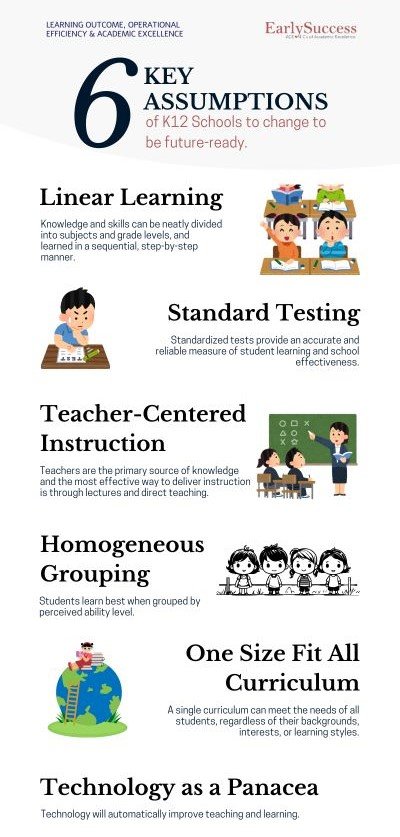Future-Ready Schools – An EarlySuccess Initiative!
Understanding the Concept of a Future-Ready School
In today’s rapidly evolving world, schools must adapt to prepare students for the future. A future-ready school embodies the principles of innovation, technology, and inclusivity, ensuring that students are not only prepared for current challenges but also equipped to thrive in an unpredictable landscape.
Key Assumptions
One primary assumption in moving towards a future-ready school is the recognition that traditional teaching methods may no longer suffice. The integration of technology into the curriculum is imperative, offering students access to diverse resources and collaborative learning environments. Additionally, a focus on critical thinking, problem-solving, and soft skills will be essential for student success in the 21st century.

Understanding the Current Challenges
The K-12 education system in India is grappling with several deep-rooted issues that impact the learning experience of students. One major concern is the reliance on linear learning pathways, which often stifles creativity and critical thinking. Students are expected to progress in a uniform manner that doesn’t accommodate individual learning speeds or styles.
Furthermore, the traditional emphasis on standard testing promotes a culture of rote memorization rather than understanding, pushing many to view education merely as a means to perform well in exams rather than an avenue for genuine inquiry.
Key assumptions that underpin the current educational framework, like teacher-centered instruction and homogeneous grouping, further exacerbate the challenges. In a teacher-centered model, the focus is predominantly on lectures and limited student participation, leaving learners disengaged.
Similarly, the one-size-fits-all curriculum fails to account for the diverse backgrounds and interests of students, which can lead to apathy and a disconnect from education.
Lastly, the belief that technology can serve as a panacea often overshadows the need for thoughtful, pedagogical integration, rather than using digital tools as mere replacements for traditional methods.
Preparing for the Future: Strategies for Implementation
To embrace this change, schools must reevaluate their teaching strategies, invest in redefining teachers’ roles in academics, digital know-how to be a creative facilitator, and foster partnerships with tech companies for custom digitization and process automation. Implementing a flexible curriculum that encourages creativity and real-world application is vital. Furthermore, engaging with the community and parents will help ensure that the transformation resonates with all stakeholders, creating a supportive environment for students.
As we look toward the future, the commitment to establishing a future-ready school will prepare our students to face the challenges of tomorrow with confidence and resilience. Together, we can cultivate an educational landscape that inspires innovation and growth.

Book Your Session
Receive a customized session on future-ready schools and a complimentary assessment for institutional effectiveness today – give us a call, email us, or submit the enquiry form
